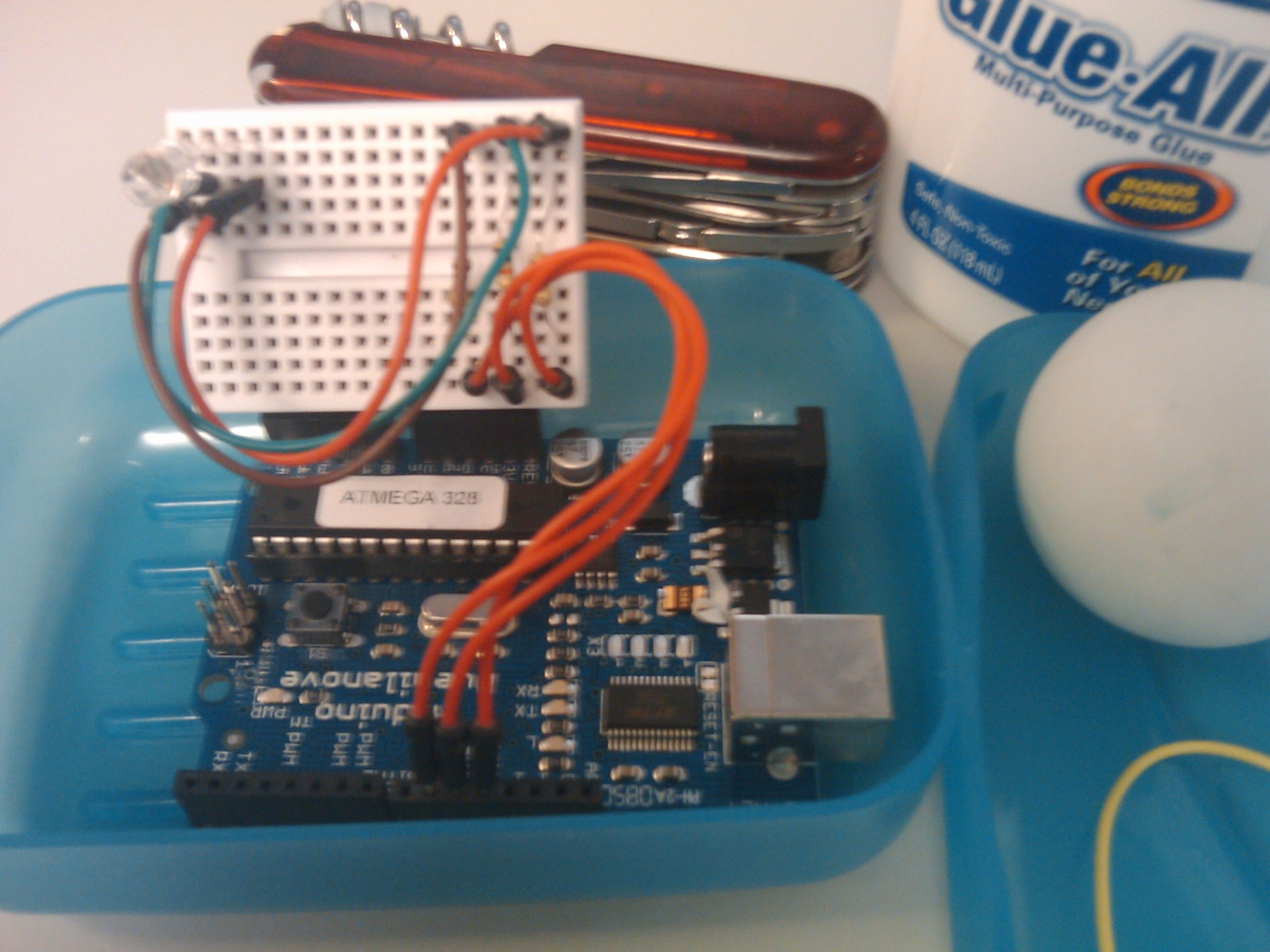(Apologies to the original poster. I noticed the ‘name’ line of the git manpage today and got inspired.)
From: sussman@red-bean.com (Ben Collins-Sussman)
Sender: cooks@red-bean.com
Subject: The True Path (long)
Date: 01 Sep 09 03:17:31 GMT
Newsgroups: alt.religion.version-control
When I log into my SunOS 4.2 system with my 28.8kbps modem, both svn
*and* hg are just too damn slow. They print useless messages like,
"Type 'svn help' for usage" and "abort: There is no Mercurial
repository here". So I use the version control system that doesn't
waste my VALUABLE time.
git, man! !man git
GIT(7) Git Manual GIT(7)
NAME
git - the stupid content tracker
SYNOPSIS
git [--version] [--exec-path[=GIT_EXEC_PATH]]
[-p|--paginate|--no-pager]
[--bare] [--git-dir=GIT_DIR] [--work-tree=GIT_WORK_TREE]
[--help] COMMAND [ARGS]
DESCRIPTION
Git is a fast, scalable, distributed revision control
system with an unusually rich command set that provides both
high-level operations and full access to internals.
---
Computer Scientists love git, not just because it comes first
alphabetically, but because it's stupid. Everyone else loves git
because it's GIT!
"Git is the stupid content tracker."
And git doesn't waste space on my Newton MessagePad. Just look:
-rwxr-xr-x 1 root 24 Oct 29 2009 /bin/git
-rwxr-xr-t 4 root 1310720 Jan 1 2005 /usr/bin/hg
-rwxr-xr-x 1 root 5.89824e37 Oct 22 2001 /usr/local/subversion/bin/svn
Of course, on the system *I* administrate, hg is symlinked to git.
svn has been replaced by a shell script which 1) Generates a syslog
message at level LOG_EMERG; 2) reduces the user's disk quota by 10GB;
and 3) RUNS GIT!!!!!!
"Git is the stupid content tracker."
Let's look at a typical novice's session with the mighty git:
$ git add *
fatal: Not a git repository
$ git checkout
fatal: Not a git repository
Failed to find a valid git directory.
$ git git
git: 'git' is not a git-command. See 'git --help'.
$ git --help
$ git over here
git: 'over' is not a git-command. See 'git --help'.
$ git "eat flaming death"
---
Note the consistent user interface and error reportage. Git is
generous enough to flag errors and pack repositories as dense as
neutron stars, yet prudent enough not to overwhelm the novice with
useless details. If users REALLY want to know what git commands are
available, a simple 'man git' will reveal them all, sheer genius
in its simplicity:
git-add(1)
git-am(1)
git-archive(1)
git-bisect(1)
git-branch(1)
git-bundle(1)
git-checkout(1)
git-cherry-pick(1)
git-citool(1)
git-clean(1)
git-clone(1)
git-commit(1)
git-describe(1)
git-diff(1)
git-fetch(1)
git-format-patch(1)
git-gc(1)
git-grep(1)
git-gui(1)
git-init(1)
git-log(1)
git-merge(1)
git-mv(1)
git-pull(1)
git-push(1)
git-rebase(1)
git-reset(1)
git-revert(1)
git-rm(1)
git-shortlog(1)
git-show(1)
git-stash(1)
git-status(1)
git-submodule(1)
git-tag(1)
gitk(1)
git-config(1)
git-fast-export(1)
git-fast-import(1)
git-filter-branch(1)
git-lost-found(1)
git-mergetool(1)
git-pack-refs(1)
git-prune(1)
git-reflog(1)
git-relink(1)
git-remote(1)
git-repack(1)
git-repo-config(1)
git-annotate(1)
git-blame(1)
git-cherry(1)
git-count-objects(1)
git-fsck(1)
git-get-tar-commit-id(1)
git-help(1)
git-instaweb(1)
git-merge-tree(1)
git-rerere(1)
git-rev-parse(1)
git-show-branch(1)
git-verify-tag(1)
git-whatchanged(1)
git-archimport(1)
git-cvsexportcommit(1)
git-cvsimport(1)
git-cvsserver(1)
git-imap-send(1)
git-quiltimport(1)
git-request-pull(1)
git-send-email(1)
git-svn(1)
git-apply(1)
git-checkout-index(1)
git-commit-tree(1)
git-hash-object(1)
git-index-pack(1)
git-merge-file(1)
git-merge-index(1)
git-mktag(1)
git-mktree(1)
git-pack-objects(1)
git-prune-packed(1)
git-read-tree(1)
git-symbolic-ref(1)
git-unpack-objects(1)
git-update-index(1)
git-update-ref(1)
git-write-tree(1)
git-cat-file(1)
git-diff-files(1)
git-diff-index(1)
git-diff-tree(1)
git-for-each-ref(1)
git-ls-files(1)
git-ls-remote(1)
git-ls-tree(1)
git-merge-base(1)
git-name-rev(1)
git-pack-redundant(1)
git-rev-list(1)
git-show-index(1)
git-show-ref(1)
git-tar-tree(1)
git-unpack-file(1)
git-var(1)
git-verify-pack(1)
git-daemon(1)
git-fetch-pack(1)
git-send-pack(1)
git-update-server-info(1)
git-http-fetch(1)
git-http-push(1)
git-parse-remote(1)
git-receive-pack(1)
git-shell(1)
git-upload-archive(1)
git-upload-pack(1)
git-check-attr(1)
git-check-ref-format(1)
git-fmt-merge-msg(1)
git-mailinfo(1)
git-mailsplit(1)
git-merge-one-file(1)
git-patch-id(1)
git-peek-remote(1)
git-sh-setup(1)
git-stripspace(1)
"Git is the stupid content tracker."
Git, the greatest WYGIWYG revision control system of all.
GIT IS THE TRUE PATH TO NIRVANA! GIT HAS BEEN THE CHOICE OF EDUCATED
AND IGNORANT ALIKE FOR CENTURIES! GIT WILL NOT CORRUPT YOUR PRECIOUS
BODILY FLUIDS!! GIT IS THE STUPID CONTENT TRACKER! GIT MAKES THE SUN
SHINE AND THE BIRDS SING AND THE GRASS GREEN!! GIT WAS HANDED DOWN TO
US FROM LINUS UPON THE MOUNTAIN, AND LINUX USERS SHALL NOT WORSHIP ANY
OTHER TRACKER!
When I use a version control system, I don't want eight extra
MEGABYTES of worthless HTTP protocol support. I just want to GIT on
with my coding! I don't want to subvert away or mercurialize!
Those aren't even WORDS!!! GIT! GIT! GIT IS THE STUPID!!!
CONTENT TRACKER.
When Linus, in his ever-present omnipotence, needed to base his patch
juggling habits on existing tools, did he mimic svn? No. Hg? Surely
you jest. He created the most karmic version tracker of all. The
stupid one.
Git is for those who can *remember* what project they are working on.
If you are an idiot, you should use subversion. If you are
subversive, you should not be mercurial. If you use GIT, you are on
THE PATH TO REDEMPTION. THE SO-CALLED "FRIENDLY" SCM SYSTEMS HAVE
BEEN PLACED HERE BY GIT TO TEMPT THE FAITHLESS. DO NOT GIVE IN!!! THE
MIGHTY LINUS HAS SPOKEN!!!
?

